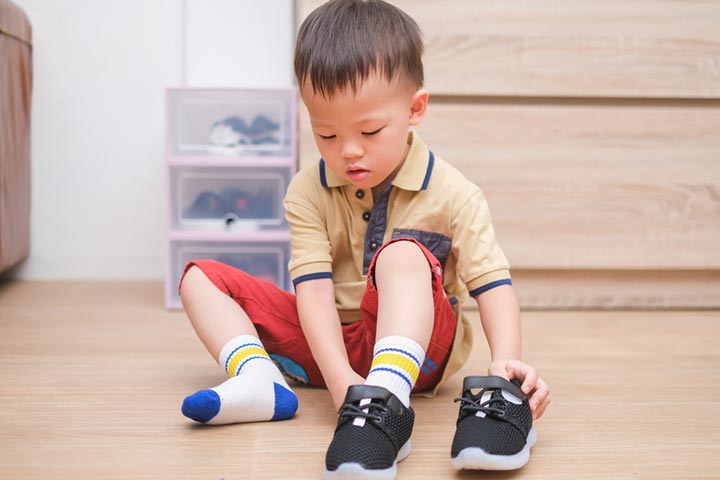Every child needs a basic grounding in math, science, technology, and current affairs. In addition to these, they should also possess another important set of life skills to succeed in life. These skills encompass interpersonal skills, communications skills, problem-solving skills, creative skills, collaborative skills, and more.
Developing life skills helps your children meet everyday challenges, make good decisions, and react well to situations when the parents or teachers are not around.
Life skills are not innate but should be learned and developed over time. It is essential to teach your child basic life skills at an early age. Read on as we will tell you the importance of life skills for kids and the essential life skills you could help your children master.
What Are Life Skills?
The World Health Organization defines life skills as “a group of psychosocial competencies and interpersonal skills that help people make informed decisions, solve problems, think critically and creatively, communicate effectively, build healthy relationships, empathize with others, and cope with and manage their lives in a healthy and productive manner.”
Empowering your children to hone their life skills will help them make logical decisions and learn what to do in different situations and how to do them.
Importance Of Life Skills For Kids
Developing life skills is a lifelong process and helps individuals grow, become mature, and achieve success. Building essential life skills is an exercise that helps children develop proper judgment and good habits. Life skills also help develop children’s personalities, talents, and mental and physical abilities. In everyday life, possessing life skills helps children
- Build self-confidence and self-esteem.
- Develop a greater sense of self-awareness.
- Appreciate others and build empathy.
- Recognize the impact of their actions.
- Prevent negative and high-risk behaviors.
Essential Life Skills For Kids To Learn
Here is a long list of essential life skills that parents should help their children acquire.
1. Cultivating independence
To let children build independence, allow them to understand a few things on their own and give them opportunities to do tasks and activities without assistance. This helps build self-confidence and self-esteem and encourages them to do simple tasks without help and be self-reliant. To learn more about how to raise independent children, have a look at an informative article here.
2. Decision-making
Making appropriate decisions is an essential life skill that every child should learn and practice from a tender age. For example, allow your child to choose between different types of clothes, toys, food, and games. This will help your child learn the consequences of each decision they make. Guide your child through this process to help them weigh the pros and cons before making any decision. Also, allow them to make mistakes when making decisions and learn through practice.
3. Self-defense
Self-defense skills will help the child gain self-confidence and inner strength and serve them well in their lives. Self-defense is not just about protecting oneself from physical force. Instead, it includes being proactive to prevent problems and using assertiveness to respond to bullying. It also teaches children how to identify dangerous situations, assess them, and then handle them.
4. Understanding another person’s perspective
When your child explains some difficult situation that they or their friends encountered, encourage the child to look at the scenario from another person’s perspective. Teach your child the emotional reactions people give out in various situations. This can improve their problem-solving skills and ability to understand people around them.
5. Talking to strangers
As your little child grows, they will meet different people, including teachers, classmates, bus drivers, and shopkeepers. Teach your child how to talk to strangers and explain themselves. This will help improve their communication and listening skills and make them more sociable. Explain to your child that not all strangers are bad and that they need to be friendly with people, all the while knowing that they need to maintain a safe distance and not be too friendly with everyone either.
6. Time management
Time management is a skill that helps children in every activity they do. It teaches them to differentiate between important work and urgent work and prioritize their tasks and duties. To learn a few tips on how to teach time management to children, click here.
7. Coping with failure
Failure is a part of life, and it helps every individual learn life lessons. Remember that you won’t be there to soothe your child every single time they feel left out or falls short at a task.
Make your child understand that failure is a part of the learning process and teach them to embrace their failures. Explain to them that failure doesn’t define a person and that it is how people cope with failures and come out stronger from that that counts.
8. Critical thinking
Critical thinking is one of the essential skills that every child should learn. Critical thinking helps one analyze and absorb information, compare situations, look at things from different angles, and make inferences.
To develop critical thinking in your children, provide them with opportunities to play games that involve critical thinking, allow your child to solve their problems, teach them to reflect on their responses, ask open-end questions, and encourage them to think in new and different ways. To learn a few more tips on how to develop critical thinking in children, click here.
9. Facing challenges
A child can grow up to be a strong adult when they learn how to take on challenges. Therefore, encourage your child to try new and different things. You could let them start by learning how to ride a bike or climb a tree. Let your child choose their challenges, face failure, bounce back from failure, and keep trying. Taking up challenges helps build confidence and a never-give-up attitude in them.
10. Resilience
Resilience is an important skill you should teach your child. This can be developed by not feeding your child with solutions constantly but by allowing them to understand a problem, think about what they can do, and solve it independently. Make sure that your child is flexible enough to adapt to different kinds of changes and environments. Here are a few strategies that you could adopt to help build resilience in your children.
11. Budgeting and managing money
Being money-savvy is a vital skill every individual should possess. Teach your child how to spend responsibly and invest for their future at an early age.
You could give your child a certain amount of pocket money once in fifteen days or once a month. If your child wishes to buy something expensive, ask them to save money and buy it. This practice will ensure they plan their budget, save before spending, and not indulge in impulsive buying. Here are some handy tips on teaching children about money.
12. Good health and hygiene
It is vital to teach your child the importance of health and personal hygiene from a very young age. Teach them the importance of brushing their teeth twice a day, washing their hands, taking a bath, and eating healthy.
Also, discuss the different types of food based on your child’s interests. For instance, if your child likes taking care of their hair, talk about foods that contain proteins and potassium. If your child loves physical activity and sports, talk about foods that increase stability and stamina.
13. Treating a wound
It is not possible for you to be around your child every time. Empower your child to take care of themselves in case of any emergency. To ensure that your child does not get anxious looking at a wound, avoid overreacting yourself. Let the child know where the first-aid kit is and how to treat wounds and cuts.
Teach your child to press the area with a clean cloth, hold the cut under the tap water, wash it with a mild soap, apply ointment with a cotton swab, and cover the wound with a bandage, gauze, or tape.
14. Cooking meals
Ask your child to help you make meals. You may assign them a few tasks, such as cutting vegetables and fruits, applying jam or butter onto a piece of bread, or putting the chopped vegetables into a bowl to make a salad.
Preparing simple meals and helping you in the kitchen will help them understand healthy food habits and teach them to be self-independent.
15. Doing laundry
Teaching your children how to do laundry will reduce your burden and instill responsible habits in them. Young children can help in pairing socks and putting dirty clothes into the laundry basket, while older children can be taught how to use washing machines, measure the right amount of detergent, hang laundry for drying, and fold their clothes.
16. Gift wrapping
Wrapping a gift will help develop the child’s creative thinking skills and help them learn different techniques of wrapping. You could give them paper and tape and ask them to wrap gifts for their friends or grandparents on special occasions. Gift wrapping is also a great way to improve your child’s motor skills and hand-eye coordination.
17. Gardening
Allow your child to help you in the garden and learn about different flowers, fruits, and vegetables. Encourage young children to water the plants regularly, while the elder kids can get involved in weeding, painting the fence panels, and mowing under supervision. You could also introduce them to some fun and creative gardening activities or DIY garden ideas.
18. Looking after pets
Having pets at home will help your child build empathy and learn how to be caring and responsible. Your child can help you clean the cages, prepare food, take the pets out for a walk, and prepare the bed for them.
19. Digital literacy
Children of this generation spend a considerable amount of time on their screens. So it is essential to reinforce a few rules to help them safely navigate the digital world. First, allow your child to use the web wisely and for a good reason. Second, teach them how to use the Internet safely and responsibly. You may teach them the internet safety tips given in this post.
20. Cleaning and doing chores
Getting children involved in cleaning activities is challenging. Start by asking them to keep their room clean, make their bed, and arrange their table. You could also ask them to help you set the dining table for a meal or clean the dishes after eating. Learning how to do chores helps children understand their responsibilities and become independent.
21. Getting ready
It is essential to allow your child to get ready themselves. Let them pick their outfit for the day and wear it on their own. Teach them how to brush their teeth, take a bath, and comb their hair before school. These are basic skills every child should learn from a very young age.
22. Table manners
Teach your child the basic table manners, such as using a knife and fork while eating, washing the hands before meals, and eating with their mouths closed. You could also teach your child how to behave at a restaurant and how to order food.
23. Swimming
Swimming is one of the essential life skills for children. It benefits children in several ways, both physically and mentally, and helps them build confidence. Swimming is also an excellent way to teach children about water safety and improve their endurance.
24. Using maps
Guide your child with the routes around the city and help them remember the different routes via landmarks. You could also ask your child to direct you to your home every time you go out to ensure that they remember the route. Teach them how to read a map and use a GPS.
25. Travelling
It is important that your child knows the basics of traveling. Starting from taking public transport to cycling, make sure that your child is well versed in how to get from one place to the other. For example, teach them how to buy a bus ticket or metro ticket and explain which metro or bus leads to your house.
Life Skills Checklist For Kids
Do you want your child to be prepared to face the real world and grow into independent adults? Help them with these age-specific abilities.
For Ages 2 and 3
| For Ages 8 to 12
|
For Ages 4 to 7
|
Life skills play a vital role in the growth and development of children and help them succeed in life. They also help children realize their potential and make effective decisions to live harmonically with others in society.
Try to teach these life skills to your children in ways that they find fun and entertaining, and remember that teaching life skills to your child requires effort, patience, and time.


































